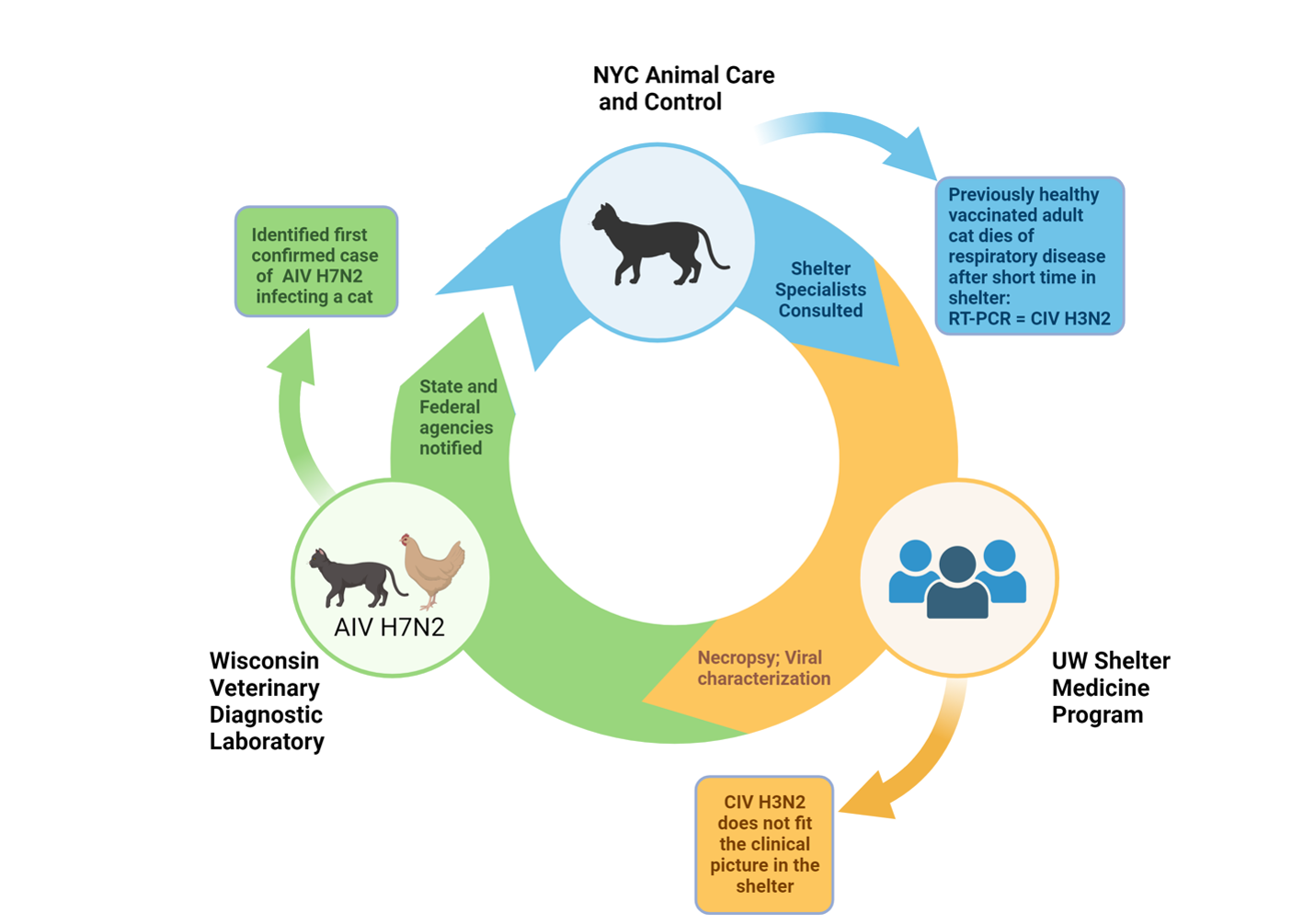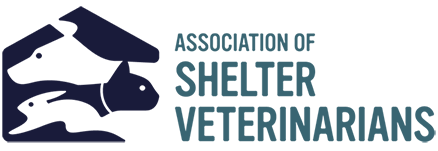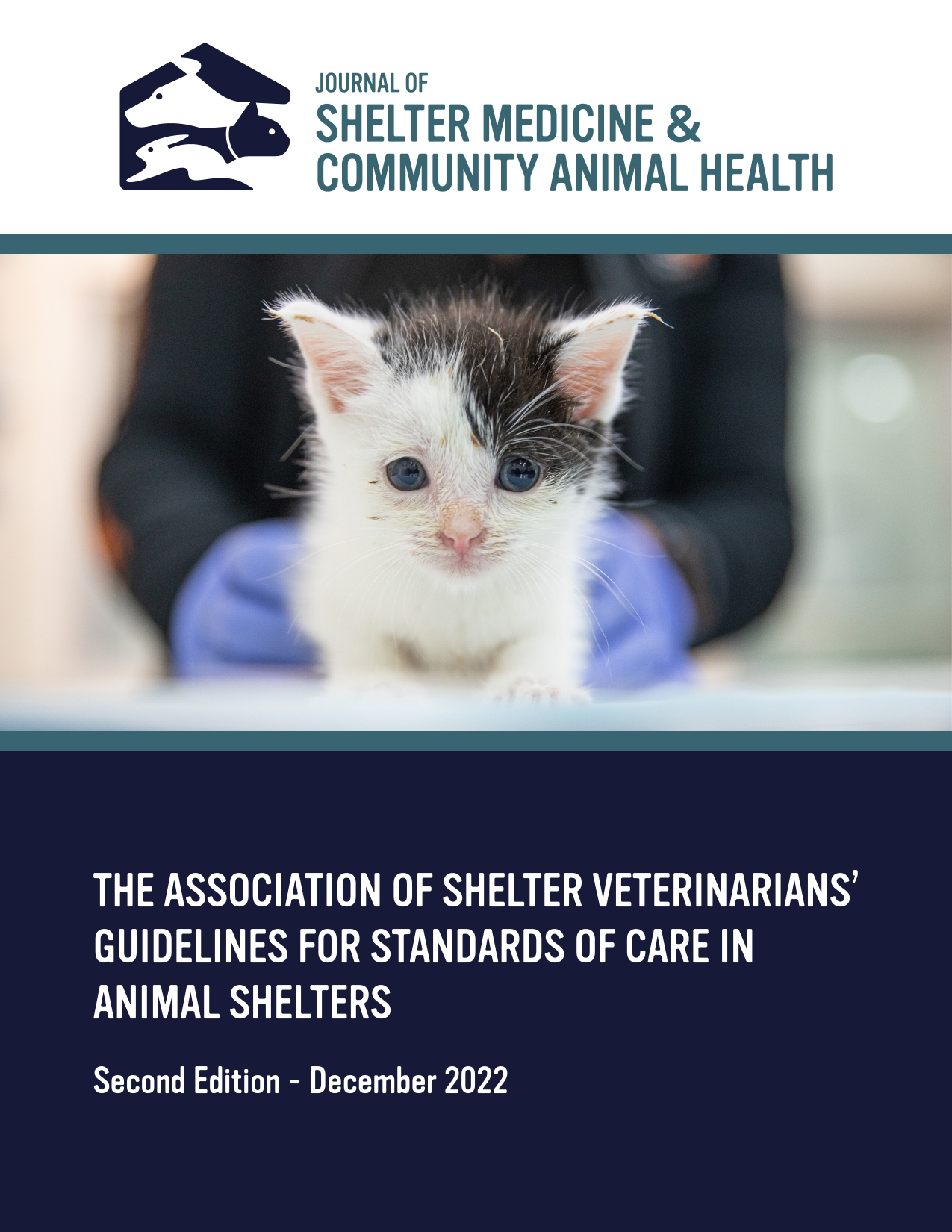Discovery of Influenza A (H7N2) in a Cat After Admission to an Animal Shelter: A Case Report
DOI:
https://doi.org/10.56771/jsmcah.v2.61Keywords:
Cat, Influenza A, H7N2, Animal Shelter, Diagnostic testing, Respiratory disease, Disease investigation, Feline, Avian Influenza, Feline Influenza, InfluenzaAbstract
This case report describes the discovery of a low pathogenic avian lineage influenza A (H7N2) (A/feline/New York/16-040082-1/2016) infecting a cat in a shelter environment. Low pathogenic avian influenza virus H7N2 had previously circulated in poultry and farmed waterfowl and had reportedly been eradicated from live bird markets in 2006. Its appearance in a cat caused concern for the local cat population and had the potential to negatively impact the agricultural industry and human health. The first cat diagnosed presented to the shelter with no apparent clinical signs. Later, conjunctivitis developed and then upper respiratory congestion, which progressed to severe pneumonia that was unresponsive to treatment and characterized by dyspnea, tachypnea, and collapse. A second cat, who had entered the shelter 17 days earlier and had died at an emergency clinic, was later considered to be the index case. The second cat had similarly arrived with no apparent clinical signs, developed respiratory congestion leading to pneumonia with tachypnea and dyspnea, and tested positive for influenza A. Clinical consultation and diagnostic testing through multiple organizations identified the virus as an avian lineage H7N2 influenza virus.
Downloads
References
Newbury SP, Cigel F, Killian ML, et al. First Detection of Avian Lineage H7N2 in Felis catus. Genome Announc. 2017;5(23): 1–2. doi: 10.1128/genomeA.00457-17
Lee CT, Slavinski S, Schiff C, et al. Outbreak of Influenza A(H7N2) among Cats in an Animal Shelter with Cat-to-Human Transmission—New York City, 2016. Clin Infect Dis. 2017;65:1927–1929. doi: 10.1093/cid/cix668
Belser JA, Pulit-Penaloza JA, Sun X, et al. A Novel A(H7N2) Influenza Virus Isolated from a Veterinarian Caring for Cats in a New York City Animal Shelter Causes Mild Disease and Transmits Poorly in the Ferret Model. J Virol. 2017;91:e00672-17. doi: 10.1128/JVI.00672-17
Marinova-Petkova A, Laplante J, Jang Y, et al. Avian Influenza A(H7N2) Virus in Human Exposed to Sick Cats, New York, USA, 2016. Emerg Infect Dis. 2017;23:2046–2049. doi: 10.3201/eid2312.170798
Poirot E, Levine MZ, Russell K, et al. Detection of Avian Influenza A(H7N2) Virus Infection Among Animal Shelter Workers Using a Novel Serological Approach—New York City, 2016–2017. J Infect Dis. 2019;219:1688–1696. doi: 10.1093/infdis/jiy595
Blachere FM, Lindsley WG, Weber AM, et al. Detection of an avian lineage influenza A(H7N2) virus in air and surface samples at a New York City feline quarantine facility. Influen Other Respir Viruses. 2018;12:613–622. doi: 10.1111/irv.12572
Jain S, Murray EL. The Cat’s Meow: Using Novel Serological Approaches to Identify Cat-to-Human Influenza A(H7N2) Transmission. J Infect Dis. 2019;219:1685–1687. doi: 10.1093/infdis/jiy596
Hatta M, Zhong G, Gao Y, et al. Characterization of a Feline Influenza A(H7N2) Virus. Emerg Infect Dis. 2018;24:75–86. doi: 10.3201/eid2401.171240
Newman A. Hazmat Suits and 500 Shelter Cats: Rare Flu Forces New York Quarantine. The New York Times. 2017. Accessed December 01, 2017. https://www.nytimes.com/2017/01/12/nyregion/sick-cats-virus-quarantine-center-aspca.html
Lycett SJ, Duchatel F, Digard P. A Brief History of Bird Flu. Philos Trans R Soc Lond B Biol Sci. 2019;374:20180257. doi: 10.1098/rstb.2018.0257
World Health Organization. Influenza (Avian and other zoonotic) 2018. Accessed May 29, 2023. https://www.who.int/news-room/fact-sheets/detail/influenza-(avian-and-other-zoonotic)
Shi J, Zeng X, Cui P, Yan C, Chen H. Alarming Situation of Emerging H5 and H7 Avian Influenza and Effective Control Strategies. Emerg Microbes Infect. n.d.;12:2155072. doi: 10.1080/22221751.2022.2155072
Kawaoka Y, Webster RG. Sequence Requirements for Cleavage Activation of Influenza Virus Hemagglutinin Expressed in Mammalian Cells. Proc Natl Acad Sci. 1988;85:324–328. doi: 10.1073/pnas.85.2.324
Gao R, Cao B, Hu Y, et al. Human Infection with a Novel Avian-Origin Influenza A (H7N9) Virus. N Engl J Med. 2013;368:1888–1897. doi: 10.1056/NEJMoa1304459
Ostrowsky B, Huang A, Terry W, et al. Low Pathogenic Avian Influenza A (H7N2) Virus Infection in Immunocompromised Adult, New York, USA, 2003. Emerg Infect Dis. 2012;18:1128–1131. doi: 10.3201/eid1807.111913
Terebuh P, Adija A, Edwards L, et al. Human Infection with Avian Influenza A(H7N2) Virus—Virginia, 2002. Influen Other Respir Viruses. 2018;12:529–532. doi: 10.1111/irv.12546
Senne DA, Pedersen JC, Panigrahy B. Live-Bird Markets in the Northeastern United States: A Source of Avian Influenza in Commercial Poultry. In: Schrijver RS, Koch G, eds. Avian Influenza, vol. 8. Springer Netherlands; 2005:19–24.
Akey BL. Low-Pathogenicity H7N2 Avian Influenza Outbreak in Virginia During 2002. Avdi. 2003;47:1099–1103. doi: 10.1637/0005-2086-47.s3.1099
Henzler DJ, Kradel DC, Davison S, et al. Epidemiology, Production Losses, and Control Measures Associated with an Outbreak of Avian Influenza Subtype H7N2 in Pennsylvania (1996–98). Avdi. 2003;47:1022–1036. doi: 10.1637/0005-2086-47.s3.1022
Trock SC, Huntley JP. Surveillance and Control of Avian Influenza in the New York Live Bird Markets. Avdi. 2010;54:340–344. doi: 10.1637/8728-032409-ResNote.1
Newbury S, Godhardt-Cooper J, Poulsen KP, Cigel F, Balanoff L, Toohey-Kurth K. Prolonged Intermittent Virus Shedding during an Outbreak of Canine Influenza A H3N2 Virus Infection in Dogs in Three Chicago Area Shelters: 16 Cases (March to May 2015). J Am Vet Med Assoc. 2016;248:1022–1026. doi: 10.2460/javma.248.9.1022
Voorhees IEH, Glaser AL, Toohey-Kurth K, et al. Spread of Canine Influenza A(H3N2) Virus, United States. Emerg Infect Dis. 2017;23:1950–1957. doi: 10.3201/eid2312.170246
Voorhees IEH, Dalziel BD, Glaser A, et al. Multiple Incursions and Recurrent Epidemic Fade-Out of H3N2 Canine Influenza A Virus in the United States. J Virol. 2018;92:1–15. doi: 10.1128/JVI.00323-18
Jeoung H-Y, Lim S-I, Shin B-H, et al. A Novel Canine Influenza H3N2 Virus Isolated from Cats in an Animal Shelter. Vet Microbiol. 2013;165:281–286. doi: 10.1016/j.vetmic.2013.03.021
De Tar L, Doyle E, O’Quin J, et al. The Guidelines for Standards of Care in Animal Shelters: Second Edition. J Shelter Med Community Anim Health. 2022;1:1–76. doi: 10.56771/ASVguidelines.2022
NYC Health. Reporting Animal Diseases. 2016. Accessed Aug 2, 2023. https://web.archive.org/web/20160320154617/https://www.nyc.gov/site/doh/providers/reporting-and-services/reporting-animal-diseases.page
NYC Health. Reporting Animal Diseases. n.d. Accessed Jun 11, 2023. https://www.nyc.gov/site/doh/providers/reporting-and-services/reporting-animal-diseases.page
Mahony JB, Petrich A, Smieja M. Molecular Diagnosis of Respiratory Virus Infections. Crit Rev Clin Lab Sci. 2011;48:217–249. doi: 10.3109/10408363.2011.640976
Watson CE, Bell C, Toohey-Kurth K. H3N2 Canine Influenza Virus Infection in a Dog. Vet Pathol. 2017;54:527–530. doi: 10.1177/0300985816681411
Dubovi EJ. Canine Influenza. Vet Clin North Am Small Anim Pract. 2010;40:1063–1071. doi: 10.1016/j.cvsm.2010.07.005
Shao W, Li X, Goraya MU, Wang S, Chen J-L. Evolution of Influenza A Virus by Mutation and Re-Assortment. Int J Mol Sci. 2017;18:1650. doi: 10.3390/ijms18081650
Borland S, Gracieux P, Jones M, Mallet F, Yugueros-Marcos J. Influenza A Virus Infection in Cats and Dogs: A Literature Review in the Light of the “One Health” Concept. Front Public Health. 2020;8:83. doi: 10.3389/fpubh.2020.00083
Zhao J, He W, Lu M, He H, Lai A. Emergence and Characterization of a Novel Reassortant Canine Influenza Virus Isolated from Cats. Pathogens. 2021;10:1320. doi: 10.3390/pathogens10101320

Published
How to Cite
Issue
Section
License
Copyright (c) 2023 Elizabeth Roberts, Carolyn Allen, Robin Brennen, Aleisha Swartz, Brenda Dines, Francine Cigel, Mary Lea Killian, Beate Crossley, David L. Suarez, Mia Torchetti, Christine Watson, Sally Slavinski, Kathy Toohey-Kurth, Sandra Newbury

This work is licensed under a Creative Commons Attribution 4.0 International License.








